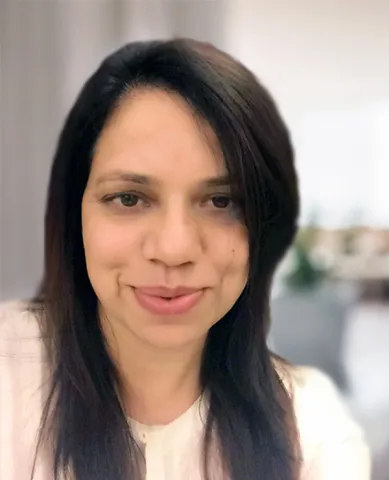Interview with Suman Sharma
Please introduce yourself and your role at Centrient Pharmaceuticals.
My name is Suman Sharma and I am a Marketing and Sales professional with decades of experience working in the Pharmaceutical sector. It enlivens and motivates me each day, the realisation that the medicines that we produce and the products we invest in as an organisation fulfil the unmet needs of patients around the world. Throughout the last couple of decades, I have had the opportunity of working for organisations like Eli Lilly, Glenmark, and now Centrient Pharmaceuticals, wherein the focus has consistently been on improving the well-being of patients battling diseases and giving them a shot at a better and healthier life. Apart from my passions at work, I enjoy travelling, reading, and meeting people across the globe and I am glad that my profession enables me to do so.
At Centrient Pharmaceuticals, sustainability is the core pillar of whatever work we do, and I work as a champion to advocate our work in India and the APAC region. We continue to be a responsible manufacturer and we’ll continue to work with Government, the Non-Government sector, and the Civil society to ensure that pharmaceutical firms take lead in ensuring the responsible production and usage of antibiotics in the global supply chain.
What do you like most about working at Centrient Pharmaceuticals?
What I appreciate the most about the organisation is its non-hierarchal culture, the attitude of empowering and trusting every employee, as well as the proactive action to prioritize our people and their needs. As an employee at Centrient, I feel recognized and valued as part of a team working towards the greater purpose of saving lives. These attitudes also reflect on our relationships with our suppliers, customers, and other stakeholders. As a women professional I am glad that I have been given an equal platform to vocalize my thoughts and never had to hold back on my opinion. Such an equal and equitable space is necessary for organisations to thrive and be inclusive.
What does it mean for you to be a leader and what is one lesson you have learned in your career?
To be a leader, like parenting, is an opportunity to nurture and grow your team so that they become effective at their work and personal life. Leaders constantly need to invest time into learning as our world is rapidly and hence constant learning will help you to understand new perspectives and challenges to lead your team effectively. As leaders, I feel it’s important for us to act proactively, taking on opportunities and challenges while keeping regard for current trends and events. That way our leadership solutions are always adapting to take into account the bigger picture for optimum problem-solving. This daily habit strengthens me personally, which in turn inspires others in my team as well as my networks. Apart from this, as women, most of us have inherent strengths of emotional intelligence, multi-tasking, and elegance which can give us an edge to understand our team effectively, to make them successful in challenging and unknown times.
One lesson I have learned is to invest time in self-awareness, meaning understanding your limitations, flaws while also acknowledging your strengths. Understanding these details will help you organize and build your team to better utilize individual strengths.
What advice do you have for women, aspiring for leadership positions?
Leaders stand for themselves and their belief by fighting their inner battle and as women, we are doing this each day. As women leaders, we must embrace our hardships, our unique strengths as mentioned above to successfully lead teams as well as refine our roles within the organisation. At times, we might fail and fall, but like any other experience, you must take challenges as a learning tool and move forward to be effective in your journey.
I have always made time for women colleagues to share my experiences, listen to them, give them opportunities even when they are not confident. This way we create an environment and network to cultivate a culture of confidence. All aspiring women leaders must try and find good mentors for themselves, who would help advocate for them, as well as guide them to also serve as leaders wherever they can. This creates an ecosystem in which more women take positions of leadership and foster diversity within organisations.
Many times it’s good to talk about gender perspectives in your casual get-togethers so that we understand and effectively support male and female team members equitably.

